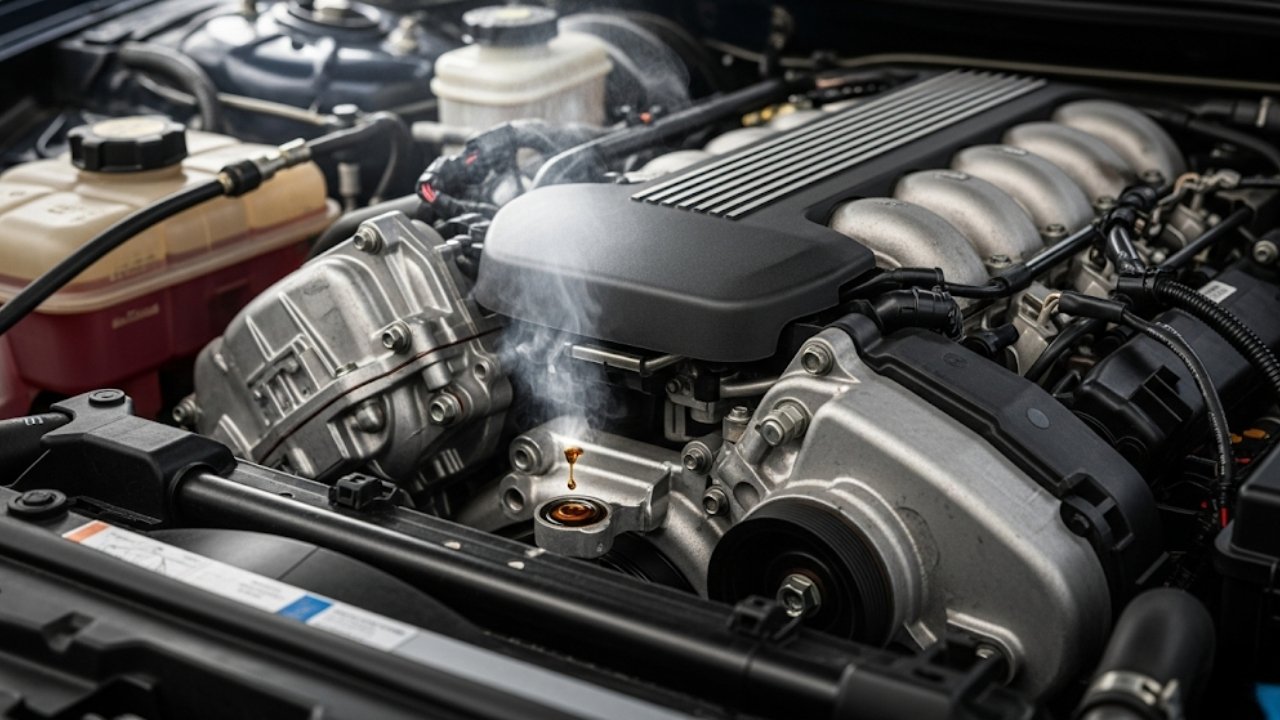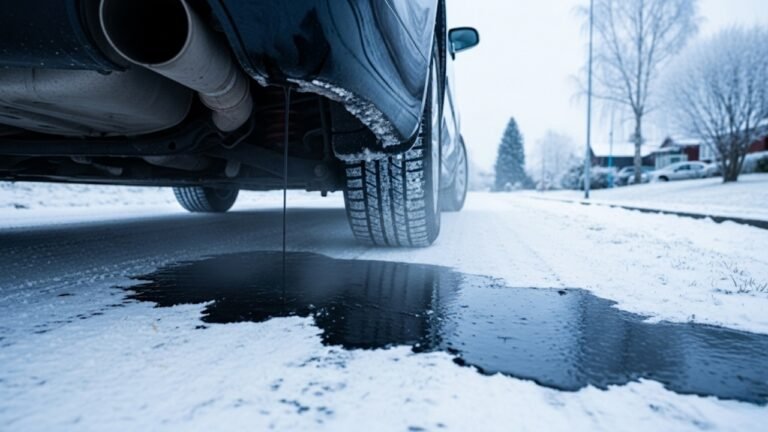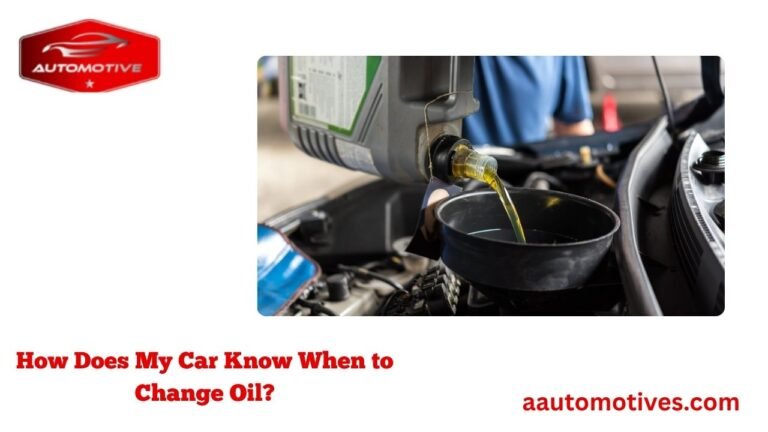Why Does My Car Smell Like Burning Oil?

You hop into your car, excited for the day. You crank the engine, everything seems fine, but just a few minutes later—you sniff something odd. That burning oil smell hits your nose like a slap in the face. Sharp, smoky, and definitely out of place.
It’s not just annoying—it’s concerning.
You start thinking, “Why does my car smell like burning oil?”
Is it dangerous? Will my car break down? Can I still drive it safely?
If you’ve found yourself asking this question, you’re not alone. Many drivers experience this unnerving issue. And while it may seem like just another weird car smell, burning oil is never something to ignore.
In this article, I’ll walk you through:
-
Common causes of the burning oil smell
-
Real-life stories and what they taught me
-
Signs you shouldn’t overlook
-
DIY tips before visiting a mechanic
-
Answers to questions you might feel too shy to ask
Let’s explore what’s going on under your hood—without getting too greasy.
The Nose Knows: What Burning Oil Really Smells Like
First, let’s make sure we’re on the same page. That burning oil smell isn’t like burning plastic or rubber. It’s darker, thicker. Some describe it as an acrid mix of hot metal and cooked engine oil. Imagine someone spilling oil on a scorching pan—that’s the scent, only worse.
I remember when I first smelled it. I thought something had caught fire in the engine. My heart raced, and I pulled over fast. But there was no smoke—just that nasty odor.
Turns out, burning oil often happens without flames. The smell usually comes from oil leaking onto hot engine parts like the exhaust manifold or catalytic converter. Once the oil hits those hot surfaces, it burns and releases that harsh, unmistakable scent.
So, if you’re getting that burnt stench from your vents or when you pop the hood, your car is trying to tell you something important.
The Top 7 Reasons Your Car Smells Like Burning Oil

1. Leaking Valve Cover Gasket
Your valve cover gasket is a rubber seal that keeps oil inside your engine. When it wears out or cracks, oil leaks out—usually right onto hot engine parts.
Signs to watch:
-
Oil on top of the engine
-
Puddle under the hood
-
Smell right after starting the engine
Personal Tip: This was my issue the first time. A $10 gasket caused a week of stress. Thankfully, my mechanic caught it early.
2. Oil Filter Not Tightened Properly
After an oil change, if the oil filter isn’t screwed on tightly or the gasket isn’t seated right, oil can leak. It slowly drips, lands on hot parts, and you get—you guessed it—that burnt oil smell.
Quick Fix: Check under the car after a fresh oil change. See a puddle? Smell something off? Head back to the shop or check it yourself.
3. Oil Pan Leak or Damaged Drain Plug
The oil pan at the bottom of your engine holds the oil when it’s not circulating. If the pan gets cracked or the drain plug is stripped or loose, oil leaks out—especially while driving.
Clues:
-
Oil spots on your driveway
-
Smell stronger after long drives
-
You’re adding oil more often
Real Talk: A damaged drain plug once cost me an engine flush. Trust me, check it right after every oil change.
4. PCV Valve Failure
The Positive Crankcase Ventilation (PCV) valve controls pressure and helps recycle fumes. If it fails, pressure builds up, forcing oil out of seals and gaskets.
What happens next?
-
Oil sneaks out
-
Lands on hot metal
-
And burns, causing that awful smell
DIY Note: If you’re handy, a PCV valve is cheap and usually easy to replace.
5. Spilled Oil During a Refill
Yes, it happens to the best of us. When adding oil, a splash might land on the engine. The smell may last a few days—but if it sticks around, there might be more to the story.
Simple Fix: Wipe any visible oil and monitor the scent.
6. Blown Head Gasket
This one’s serious. A blown head gasket can cause oil to leak into the engine or onto hot parts, leading to the burning oil smell. It might also mix oil and coolant—bad news for your engine.
Warning Signs:
-
White smoke from the exhaust
-
Milky oil
-
Overheating
If you suspect this, stop driving and call a mechanic. It’s not worth the risk.
7. Worn Piston Rings or Cylinder Walls
High-mileage cars sometimes develop internal oil leaks. The oil seeps into the combustion chamber and burns, releasing smoke and smell through the exhaust.
This isn’t an easy fix—it usually requires engine work or even replacement.
Warning Signs You Should Never Ignore
A burning oil smell often comes with clues. Keep your senses alert:
-
Visible smoke under the hood or from the exhaust
-
Low oil levels (even after topping up)
-
Unusual engine noise or knocking
-
Check engine light or oil pressure warning
Here’s a quick table for your reference:
| Symptom | Possible Cause | Urgency |
|---|---|---|
| Smell after start-up | Valve cover leak | Medium |
| Smell while driving | Oil pan or filter leak | High |
| White exhaust smoke | Blown head gasket | Critical |
| Oil on engine | Spill or gasket failure | Medium |
| Frequent oil top-ups | Internal engine issue | High |
Is It Safe to Drive With That Smell?
Short answer? Sometimes—but don’t ignore it.
If the smell fades after a few minutes, it might be minor (like a spill). But if it lingers or worsens, oil might be leaking dangerously close to hot components. Left unchecked, it can lead to:
-
Engine overheating
-
Fire hazards
-
Costly engine damage
I once ignored it for a week—big mistake. My alternator belt got soaked in oil, snapped while I was on the highway, and I had to get towed. Lesson learned.
Quick Fixes Before Heading to the Mechanic
Not every burning oil smell requires a professional. Try these steps first:
-
Check your oil level: Low oil? Top up carefully.
-
Look for leaks: Use a flashlight under your hood.
-
Inspect the oil cap: Make sure it’s tight and sealed.
-
Sniff around: Where is the smell coming from? Vents? Engine bay?
And if you’re doing your own oil change:
-
Always wipe off spilled oil
-
Replace the oil filter gasket properly
-
Tighten everything snug, not too tight
But if you see smoke or the smell intensifies—stop driving and get help.
The Cost of Ignoring That Burning Oil Smell
Let’s say you’re busy, and you ignore the smell for a while. What could really go wrong?
More than you think.
Ignoring that burning oil smell is like ignoring the smell of gas near your stove—it’s not just a nuisance, it’s a red flag.
Here’s what could happen if you let it slide:
-
Fire Risk: Oil is flammable. When it leaks onto hot engine parts, it can ignite. That’s not just dangerous—it’s terrifying.
-
Engine Wear and Tear: Leaks lower your oil level. Less oil means less lubrication, and that leads to friction. Friction leads to overheating. And overheating? It can seize your engine.
-
Expensive Repairs: What starts as a $50 gasket fix can easily snowball into a $2,000 engine job if ignored.
-
Reduced Fuel Efficiency: Burning oil affects your engine’s performance. More drag. More fuel use. Less power.
-
Environmental Harm: Leaking oil contaminates the road, groundwater, and even your driveway. It’s bad for nature and your wallet (hello, cleanup costs).
So if you ever find yourself asking, “Why does my car smell like burning oil?“, remember—it’s a question worth answering fast.
How a Mechanic Diagnoses Burning Oil Smells
You might wonder: what do mechanics do that I can’t?
Here’s a simple breakdown of their diagnostic process:
1. Visual Inspection
They start with the basics:
-
Look for oil leaks under the hood and engine block
-
Check the oil pan, valve cover, oil filter, and dipstick
-
Examine belts and hoses for signs of oil contamination
2. Smell and Smoke Tests
Sometimes mechanics let the engine idle to recreate the smell. If it starts smoking, that’s a sign the oil is burning on a surface.
3. Dye Testing
If leaks are hard to spot, they might add UV dye to the oil. After running the engine, they shine a black light to pinpoint leaks.
4. Compression Test
If they suspect internal engine issues, they’ll check for piston ring wear or head gasket failure using pressure readings.
5. Check Engine Light Codes
Modern cars store diagnostic codes. A simple OBD-II scan can tell if your PCV valve is malfunctioning or if combustion is off.
This thorough process ensures they find the root cause, not just the symptom.
How to Prevent Burning Oil Smells in the First Place
Prevention is better (and way cheaper) than the cure. These simple habits can save your nose—and your engine:
✅ Regular Oil Checks
Check your oil level at least once a month. If it’s low, top it up with the correct viscosity grade.
✅ Timely Oil Changes
Stick to your manufacturer’s oil change schedule—usually every 3,000 to 7,000 miles depending on your car and oil type.
✅ Watch for Leaks
After parking, check under your car for oil spots. Catching small leaks early can prevent bigger issues.
✅ Keep Your Engine Clean
Dirt and grime can trap heat and worsen oil burns. Wipe down your engine occasionally or have it detailed.
✅ Use Quality Parts
Cheap oil filters and seals often fail faster. Spend a few extra bucks on OEM or high-quality aftermarket parts.
✅ Let the Engine Cool Before Refill
Adding oil to a hot engine can lead to spills. Let it cool, then pour carefully.
FAQs: Burning Oil Smell – Common Questions Answered
❓1. Can I drive with a burning oil smell?
You can—but you shouldn’t. If the smell is minor and there are no other symptoms, drive straight to a mechanic. If there’s smoke or low oil pressure, stop immediately.
❓2. Is a burning oil smell always from an oil leak?
Most of the time, yes. But sometimes it’s due to oil spilled during refills, or PCV system failure. Rarely, other fluids (like transmission or coolant) can mimic the smell.
❓3. Why does the smell come through my air vents?
If the leak is near the exhaust or manifold, it can enter your HVAC system. Turn off your heater/AC and open windows to vent the smell safely.
❓4. What should I check first if I smell burning oil?
Start with:
-
Oil level
-
Oil cap and filter tightness
-
Puddles under the car
-
Visible smoke under the hood
❓5. Can dirty oil cause a burning smell?
Yes. Old, dirty oil can become thinner and more volatile, making it easier to leak or burn. That’s why oil changes matter.
❓6. Does burning oil affect emissions tests?
Absolutely. If your car is burning oil, it may fail emissions due to excessive hydrocarbons or blue smoke from the tailpipe.
❓7. How much does it cost to fix a burning oil smell?
Depends on the cause:
-
Oil cap/gasket: $10–$50
-
Valve cover gasket: $100–$300
-
Oil pan: $200–$600
-
Head gasket: $1,000–$2,000+
❓8. Is it dangerous for health to inhale burning oil fumes?
Yes. Prolonged exposure can irritate your lungs and throat. Always ventilate your car and avoid idling with the smell present.
The Takeaway: What Should You Do Now?
If your car smells like burning oil, don’t panic—but don’t wait either.
That smell is your car’s way of waving a red flag. Catching the issue early could save you thousands—and keep your ride safe.
Let’s recap:
Why does my car smell like burning oil?
Because oil is likely leaking and landing on hot engine parts.
What should you do?
-
Check oil levels and look for leaks
-
Identify the source of the smell
-
Visit a trusted mechanic if unsure
️ How can you prevent it?
-
Regular oil changes
-
Quality parts
-
Quick responses to small leaks
Final Thoughts: Listen to Your Nose
Cars have a language of their own. They rattle when loose, knock when misfiring, and yes—smell when they’re in trouble.
When mine first smelled like burning oil, I brushed it off. Life was busy. I didn’t want to deal with the garage. But the longer I waited, the worse it got. Lesson learned: your car’s smell is a message. Don’t ignore it.
So next time your nose wrinkles at that sharp, oily scent, don’t just roll down the windows. Get curious. Get informed. And get it fixed.






